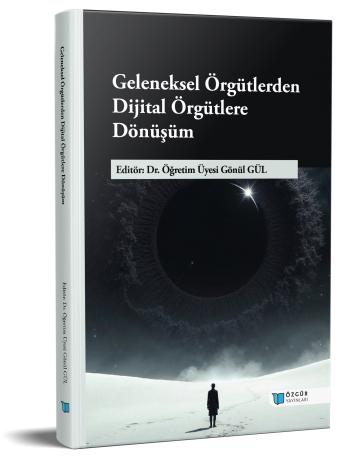
Information Management in the Digital Age and Trends Shaping the Future
Chapter from the book:
Gül,
G.
(ed.)
2025.
Transformation from Traditional Organizations to Digital Organizations.
Synopsis
In the digitalizing world of the twenty-first century, information has become the basic dynamic of organizational competition; Knowledge management has been redefined as not only a technical process, but also a cultural, ethical, and strategic area of governance. This study aims to analyze the multi-layered transformation of knowledge management in the digital age on a conceptual level. Technologies such as artificial intelligence, big data, Blockchain and autonomous systems have expanded the scope of information management and led to radical changes in the production, sharing and protection of information. In the study, with the historical-conceptual comparison method, the information management trends that emerged in the first quarter of the 21st century and the scenarios for the future were discussed comparatively. This new paradigm, in which the value of information shifts to meaning-making and sharing processes rather than ownership, directly affects organizational learning, information security, information ethics and strategic decision-making processes. In addition, the rise of AI-powered and autonomous information systems increases the quality of knowledge-based decisions and brings new discussions such as data ethics, algorithmic transparency, and digital inequality. As a result, the future of knowledge management; It will be shaped not only by technological infrastructures, but also by cultural, ethical and managerial adaptation capacity. In this context, the study contributes to understanding the transforming knowledge management understandings in the digital age and to developing strategic predictions for the future.

